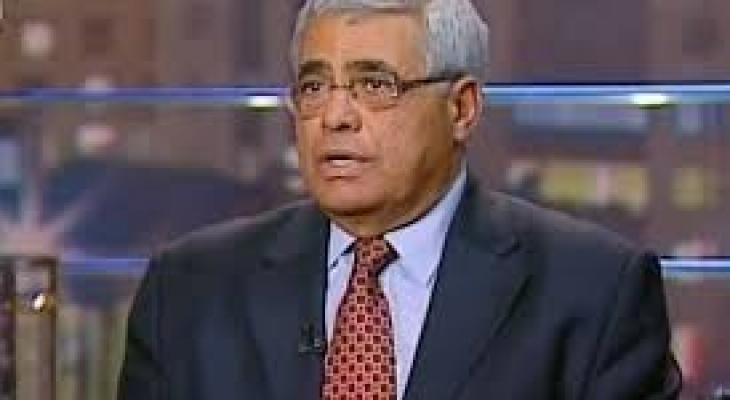Recognition of a Palestinian state is a step forward but not enough
Al-Khamisa News Network - Gaza

By Dr. Hassan Nafaa
The international arena has in recent weeks witnessed a noticeable momentum aimed at affirming the Palestinian people’s right to establish an independent state and at broadening international recognition of that right. That momentum peaked last Monday (Sept. 22, 2025) with the holding of the “Two-State Solution” conference on the sidelines of the UN General Assembly’s 80th session.
The significance of the Two-State Solution conference stems from two main factors. First, it came days after the issuance of a declaration outlining a roadmap to establish a Palestinian state on the June 4, 1967 borders with East Jerusalem as its capital (the New York Declaration), which was endorsed by 142 countries—nearly three quarters of UN member states. Second, it took place amid a historic shift in Western countries’ stance on the Palestinian issue, reflected in the recognition of an independent Palestinian state by more than ten countries, including the United Kingdom, France, Canada, Australia and others.
It is true that those ten countries had previously publicly expressed support for a “two-state solution,” yet they had not dared to officially recognize a Palestinian state, conditioning such a step on the conclusion of a prior agreement between Palestinians and Israelis on the borders and foundations of that state, and on the absence of U.S. objection. Now, convinced that those two conditions cannot be met because of the position of both Israel and the United States rejecting a two-state solution, they decided to settle the matter and officially recognize an independent Palestinian state despite the complications that decision may entail.
The Palestinian people do not need anyone’s recognition to prove their right to establish an independent state. In 1947 the UN General Assembly adopted a decision to partition historic Palestine into two states, one for Jews and one for Palestinians (Resolution 181), which constitutes a clear and explicit legal recognition of that right. It is true that the Palestinian people rejected the partition decision because of what they regarded as severe injustice to their inalienable historical rights, but that rejection in no way diminishes their established legal rights in this regard, which were entrenched by the international community through the UN General Assembly.
When David Ben-Gurion unilaterally declared the establishment of the State of Israel in 1948 based on the borders drawn in the partition resolution, that declaration implicitly recognized that the remaining part of historic Palestine belonged to the Palestinian people, who retained the exclusive right to establish an independent state there.
It is also true that Israel has since then never ceased its attempts to expand and seize its neighbors’ lands by force through successive wars, and it has in fact gone beyond the geographical limits set by the partition resolution. International law, however, does not recognize the legitimacy of that expansion and therefore treats the lands seized by force as occupied territory from which it must withdraw, rather than as disputed land as Israel often claims.
When the Palestine Liberation Organization (PLO), as the sole legitimate representative of the Palestinian people, abandoned the principle of armed struggle in 1988 and decided to seek a peaceful settlement of the conflict—and concretized that abandonment by signing the Oslo Accords in 1993—the PLO did not insist on the partition decision as the legal reference for the desired settlement, despite the fact that it would have provided a basis to demand a Palestinian state on roughly 44% of historic Palestine. Instead, it accepted UN Security Council Resolution 242 as the basis for settlement, even though that resolution allows it to claim only the territories occupied in 1967, representing at most 22% of historic Palestine. That implied a prior acceptance to settle for about half of historic Palestine—a huge concession that should have prompted Israel to move quickly to accept and translate it on the ground, which did not happen. Less than two years after Oslo entered into force, Yitzhak Rabin was assassinated and the far right began rising gradually until it controlled the levers of power in Israel, then worked relentlessly to abort attempts to establish an independent Palestinian state as a first phase toward realizing its vision of a “Greater Israel” based on a biblical conception.
Three full decades separate 1993, which saw the signing of the Oslo Accords, and 2023, which saw the onset of the “Al-Aqsa Flood.” That is a long enough period to test the effectiveness of the policies used by the conflict’s two main parties—the Palestinian and the Israeli—which stood in stark opposition.
While the Palestinian Authority, supported by most official Arab regimes, sought a final settlement centered on the creation of a Palestinian state with East Jerusalem as its capital on the territory occupied in 1967, Israel, backed by successive U.S. administrations, put obstacles in the way of the desired Palestinian state and sought to replace it with geographically isolated cantons whose inhabitants would have a degree of self-rule, while Israel retained all powers enabling it to impose unilateral sovereignty over the land and resources and to control all security files and stabilize them. When these contradictory policies led to the outbreak of the “Al-Aqsa Flood” on Oct. 7, 2023, Israel sought to turn the crisis into an opportunity to impose its vision of a settlement on others and to pave the way for a “Greater Israel.” This explains its decision to launch a campaign involving genocide, displacement and starvation on the Palestinian front in general and Gaza in particular, while simultaneously waging deterrent, intimidating and destructive wars on the other fronts engaged in the “axis of resistance,” delivering painful strikes to capitals across the Arab and Islamic world, from Beirut to Doha and including Damascus, Tehran and Sanaa.
It is worth noting that what has happened in the region since the Al-Aqsa Flood revealed two highly significant truths. First, the brutality of Israel, which has been manifest in crimes whose ferocity in many respects surpassed those committed by some of the most brutal regimes in human history, including the Nazi regime itself. Second, the legendary resilience of the Palestinian people, both armed and civil, evidenced by the extraordinary bravery shown by resistance factions despite their relatively primitive weaponry, and by the astonishing clinging to land and homeland displayed by the masses despite the severity of the killing, repression, pursuit and starvation they have faced.
The interplay of these two truths has triggered a worldwide surge of sympathy with the Palestinian people and support for their just cause, alongside mass protests rejecting Israeli practices after the mask was completely removed from its expansionist and racist project. The massive demonstrations that erupted in most Western capitals exerted pressure on their governments, helping to explain the recent wave of recognitions of a Palestinian state and signaling that the Palestinian issue has entered a new crossroads.
The current wave of recognition of the desired Palestinian state is not expected to change the future of the Palestinian issue significantly unless it is followed by punitive measures imposed on Israel for reducing Gaza to a pile of ashes and making it uninhabitable, and for continuing military operations aimed at forcing its population to flee and emigrate.
Confident that its policies, however extreme, will receive full support from the Trump administration, Israel is unlikely to be greatly bothered by other countries’ positions, especially if those positions remain symbolic or legalistic. It may therefore escalate, for example by announcing the annexation of large parts of the West Bank, which would put the major European countries that recently recognized a Palestinian state—particularly the UK and France—facing a hard test.
If Israel prefers not to escalate, it is likely to continue its usual policies of land seizure, settlement expansion and incursions into holy sites. Since it would be unacceptable for major countries that have recognized a Palestinian state to tolerate the continuation of the same policies they previously allowed, they will need to take a different approach, at least refraining from importing goods produced or manufactured in the settlements and adopting tough measures to punish those responsible for acts of genocide and daily war crimes. Therefore, the international momentum currently underway should not be underestimated, particularly since it has already led to the isolation of the United States and Israel, which now stand alone against the rest of the international community.
In this context, the Palestinian issue is likely to witness developments of great importance in the coming weeks and months. Either the United States and Israel will succeed in imposing their unilateral will on the international community as a whole, which would inevitably lead to the liquidation of the Palestinian cause—a scenario hard to imagine—or the international community will be able to exert enough pressure to force these two rogue and arrogant states to change their positions, which is the more likely scenario, especially if the Palestinian people and their armed factions can continue to hold firm during that critical period. Let us hold fast to the hems of hope.






